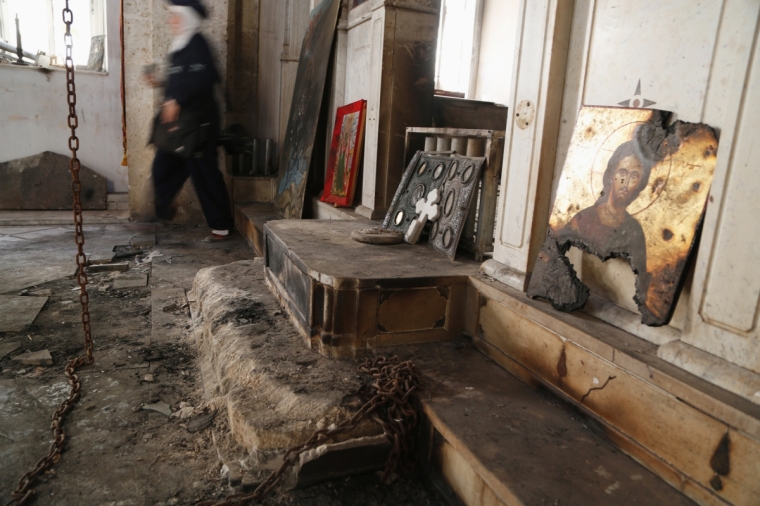Will the U.S. government unite in labeling ISIS killings 'genocide'?

WASHINGTON (Christian Examiner) – The House Foreign Affairs Committee passed a bi-partisan resolution March 2 calling the Islamic State's purge of Christians and other religious minorities from the Middle East "genocide."
It is the first time a branch of the U.S. government has given the designation to the murderous reign of the hardline Islamic terror group, which began as an outgrowth of Al-Qaeda after President Barack Obama ordered the withdrawal of U.S. troops from Iraq.
The resolution calls on the United Nations and the U.N. Secretary General to "assert leadership by calling the atrocities war crimes, crimes against humanity, and genocide," a summary of the resolution said. It also called on the Arab states in the region to uphold religious freedom and justice and collaborate on efforts to destroy ISIS and punish its leaders and soldiers through "tribunals."
Finally, the resolution also claims that terrorists who cause people to flee their ancestral homelands, including specifically what was once the heavily Christian Plain of Nineveh and Mount Sinjar, where the Yazidis lived, should also be considered as having committed international crimes.
Christians have been calling for the U.S. government to recognize the atrocities committed by ISIS as genocide for several years, but the White House has resisted those calls. During his press briefing Monday, White House Press Secretary John Earnest said the Obama administration has been taking action to protect Christians, Yazidis and other religious minorities in Iraq, but it was not ready to call the mass killings "genocide" yet.
"My understanding is, the use of that word involves a very specific legal determination that has at this point not been reached. But we have been quite candid and direct exactly about how [the Islamic State's] tactics are worthy of the kind of international, robust response that the international community is leading. And those tactics include a willingness to target religious minorities, including Christians," Earnest said.
According to Article 2 of the U.N.'s Convention on the Prevention and Punishment of the Crime of Genocide (1948), genocide includes any act "committed with intent to destroy, in whole or in part, a national, ethnical, racial or religious group" by "killing members of the group; causing serious bodily or mental harm to members of the group; deliberately inflicting on the group conditions of life calculated to bring about its physical destruction in whole or in part; imposing measures intended to prevent births within the group; [and] forcibly transferring children of the group to another group."
All of the aspects of genocide have clearly been carried out by ISIS. Still, the U.S. State Department and Secretary of State John Kerry also have passed over multiple opportunities to label the work of ISIS as genocide. Now, the passage of the resolution – by a unanimous vote of both Democrats and Republicans – may push Kerry to act.
Even if he does not wish to act, Kerry is required to do so. Under the requirements of the omnibus spending bill passed last December, Kerry has to decide whether to label the killing of Christians and other minorities by ISIS as genocide by March 17.
Kerry told the committee earlier in February that he was leaning in the direction of applying the label, but he said "further evaluation" was still required.
"I share just a huge sense of revulsion over these acts, obviously," Kerry said. "None of us have ever seen anything like it in our lifetimes. Although, obviously, if you go back to the Holocaust, the world has seen it."
Kerry was responding to a question from Rep. Jeff Fortenberry (R.-Neb.), one of the principal sponsors of the resolution. Rep. Anna Eshoo (D-Calif.) was a co-sponsor.